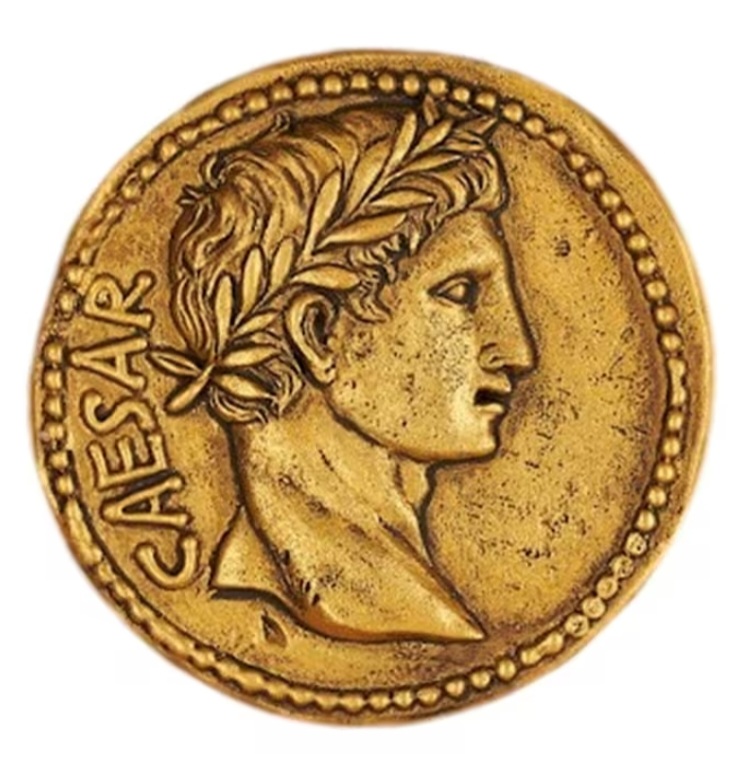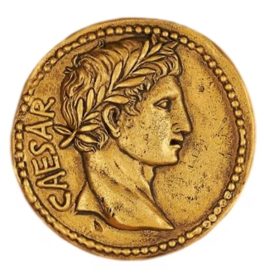Religion and Politics (Matt 22:15-21)
Today’s Readings open up the contentious relationship between religion and politics, between the sacred and secular dimensions of life. In the First Reading the political decision of the Babylonian King, Cyrus, unwittingly served the plan of God for the release of the Jewish captives. In today’s Gospel, the enemies of Jesus try to trap him in the political minefield of paying taxes to the Romans. “Is it permissible to pay taxes to the Romans or not?” If he opposes paying taxes, the Romans will take a political case against him in the civil court. But if he is in favour of paying, he will lose all popular support. It looks like a no-win situation.
A dishonest alliance
The alliance of Pharisees and Herodians, traditional enemies, was a dishonest, hypocritical partnership. Pharisees were determined to maintain total separation from all foreign culture, while the Herodians owed their power through wheeling and dealing with the Romans. Normally Pharisees and Herodians would be at loggerheads with each other. Notice their hypocrisy in calling Jesus an honest man. Jesus saw through their hypocrisy and cleverly turned the question back on those who asked it. Instead of saying yes or no, he suggested that they had the answer in their own pockets. “Let me see the money you pay the taxes with. Whose head is this? Whose name?” The head was an image of “Tiberius Caesar, Son of the Divine Augustus.” Divine Augustus! This was a double whammy for the Pharisees who were adamant about not worshipping images and certainly not any politically appointed god. If you have Roman money, if you avail of their great engineering projects, their roads and bridges, their aqueducts and water cisterns, do you expect to get it all without taxation? Pay back to Caesar what you get from belonging to the Empire. Then Jesus adds the punchline. Give to God what belongs to God.
Collaboration not Separation
Total separation of politics and religion is not feasible because we have dual citizenship, of earth and of heaven. Secularism denies our responsibilities towards God: selfcentred piety reneges on earthly and social responsibilities. Religion and politics live in holy harmony in the person who is fully responsive to God and to society. What is required is not the separation of religion and politics but their collaboration. Politics without principles is destructive, whereas religion without social action is not serving the kingdom of God.
Catholic Social Teaching
The name Catholic literally means all-embracing. Ever since the famous Encyclical of Pope Leo XIII, Rerum Novarum (1890), the Catholic Church has been a strong voice advocating social ideals such as peace, justice, workers’ rights, the duties of employers, access to education and medical care, a fair distribution of wealth, and respect for life from womb to tomb. Pope Francis brings a religious dimension to ecology’s care of the environment. He condemns the death penalty and the use of nuclear weapons even as a deterrent. The weapons of war today are so much more powerful than those of the past that Pope Francis holds that there is no such thing as a just war nowadays.
The Kingdom of God
Jesus Christ set out the purpose of his mission as the establishment of the reign of God in society. He established the Church as a community of workers for the kingdom of God. It comes as no surprise that in the aftermath of two World Wars the six leaders who planted the seeds of the union of European countries, traditional enemies, were six Catholics. The true ideal of politics is the promotion of social good in society and this ideal is strengthened by the vision of community and shared responsibility offered by religion. What is required is not the separation of politics and religion but their collaboration. “Render unto Caesar what belongs to Caesar, and to God what belongs to God.”


